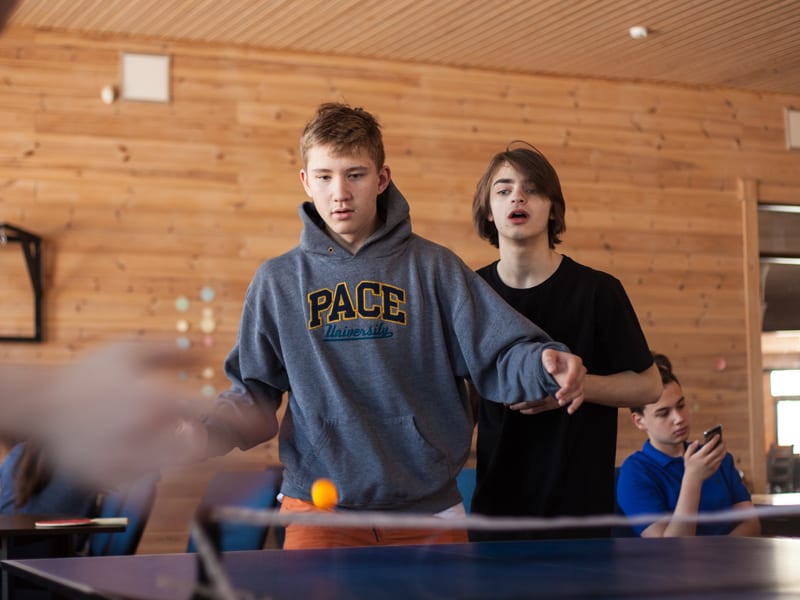Dealing with frenemies was hard enough the first time around, but here we are, going through it all over again with our kids. There’s something so confronting about a mean friend and it’s certainly one of life’s more treacherous waters to have to learn to navigate.
As I guide my own kids to healthy friendships I’m often struck by just how mean kids can be. I guess it’s what happens when you take hormones, insecurity, competitiveness, jealousy and FOMO and stir it all up in a school playground. It’s a horrible mix and deeply unsettling to be treated so callously by people who are “supposed to be my friend” (how often have you heard your kid utter that immortal line?).
It’s no wonder that mean friendship issues can make our kids feel incredibly unhappy and unsafe at school.
Worse, toxic friendships can feed adolescent insecurities, making our kids doubt themselves down to their very core.
My own frenemies triangle
I get it. I was caught in a vicious circle of hot and cold friendship in Year 4/5. The broken eggshells of friendships. Never quite sure where you stood, never confident that you were liked, always bending over backwards to please.
Eventually, I came to my senses and started quietly moving into other friendship groups. The retaliation from the frenemies was swift and brutal. For weeks I endured bullying, both physical and emotional, and social isolation. Fortunately, by then I was convinced that there was something wrong with them, not me. So I endured the battering like an 11-year-old trouper and eventually they grew tired of getting no response. Presumably they went back to needling each other instead.

Of course, like 99.99% of people on the planet, the two girls I hung out with who turned out to be such horrible frenemies, were actually not horrendous people. Most of the time, they were fun and kind and charming. The rest of the time, they were caught up in the kind of power play that turns even the nicest adolescent into a Regina George.
What makes frenemies
Why is it so hard for friends to just be… friendly? All the time? It’s natural for every friendship to have little skirmishes and ebbs and flows.
We are all just human, and no one is more human than an adolescent.
Yo-yo friendship are not healthy (friends one day, dropped for some trivial reason the next, back to being friends the day after that), but getting irritated by something a friend does or doesn’t do is going to happen from time to time.
The key is understanding whether your child feels comfortable discussing these irritations, or not. Does she or he worry that the friendship would be over if they raised their concerns? If they are constantly walking on eggshells, worrying about pleasing the friend, the power balance is not equal and there’s a fair chance this friendship is heading for frenemies territory.
“We can think of a frenemy as someone in your world who has insulted and betrayed you,” says psychologist and author Dr Glenn Geher writing for Psychology Today. “Someone you don’t trust. Someone who has engaged in actions that made you angry, you did not feel were forgivable, made you think about revenge.”
In other words, a friend who has broken your trust along the way, but who you still want to be friends with for any number of reasons. “This could be because this person is part of your broader social circle,” says Geher. “Cutting this person out explicitly as a friend could be too socially risky for you.”
The need to belong
Looking at it like that, we can see how our kids get caught up in frenemy relationships. Adolescents are still learning how to to be assertive and stand up for themselves. Most are also cripplingly worried about belonging to their peer group, hence their propensity to just ‘go with the flow’. Add to that the fact that this kind of mean behaviour in most kids is unpredictable – usually they are perfectly lovely, it’s only when they get a sniff of power that they go rogue.

Most kids will perceive (and rightly so) that calling out someone for mean behaviour might get them ostracised from the group. Kids instinctively know that ‘mean kids’ – ie, the kids who need to control the power in a group – are likely to do whatever it takes to stay in power. They can be very:
- manipulative
- directive
- demanding
- entitled
- overly dramatic
Hence, most kids are very reluctant to stand up for themselves in the way the adults in their life might like them to. No one want to poke the lion.
Here’s what you can suggest they do instead.
How to deal with frenemies
1. Understand what good friendship is
The most important thing is that kids understand what a good friendship feels like. That way, they’ll be able to identify their frenemies and hopefully rely on their true friends to see them through.
Friendship is supposed to lift you up, not put you down.
- Friends are kind and go out of their way to make each other feel happy and secure.
- Friends are loyal and stick together – even when they might not even agree with each other, they still have each other’s backs.
- Friends are trustworthy – they do what they say they will do it and you can rely on them to keep a secret.
- Friends make you feel valued and interesting – they bring out your best.
- Friends are fun to be around – you do good stuff together and come up with new ideas.
- Friends fight fair and apologise or forgive when things go wrong.
2. Reassure and rebuild
Remind your child that relationship problems are part of life. It isn’t necessarily something they are doing, or not doing. This is an excellent opportunity to pile on the positives – all the people that love them dearly, everything you love about them, everything they do well, all the times they’ve made a little extra effort that paid off. A little reminder that one person does not define us in the world.
It’s also a good opportunity to remind them that even though this friend is being mean, they also have lots of great qualities and have been kind in the past. Not to dismiss the current behaviour, but to reinforce that people are not black and white. We all do questionable things from time to time.
3. Quietly stand up for themselves
Your child might not feel like they can go against their group by calling out the friend who is making them feel bad. But what they can do is not ‘go along with it’. Let them know that they don’t have to laugh along or shrug it off.
No one should ever have to put up with someone being nasty.
Instead, they can show with their body language that they aren’t happy with the situation. Placing hands on hips works well. They can then try to change the subject or distract the group by pointing out something else to talk about. If that doesn’t work, they should learn to walk away. They can do this in a non-confrontational way by just saying they need to go get something from their locker, or to see a teacher. If they haven’t got another friend to go and sit with, they can always go to the school library and hang out there. The safe haven of kids for generations.
4. Talk to the friend in private
It’s important to encourage your child to stand up for themselves by having a word to their friend about how they make them feel. It’s a good idea to have this talk when they are away from the rest of the group. Some kids will be confident doing this, others less so. A lot depends on the kind of friendship you have with the frenemy in the first place. If they are able to do so, a quiet word with friend away from the rest of the group may be enough to stop their mean behaviour.
Some good tips here: How to help your child be more assertive
A good way to start such a conversation is by using one specific example of a time the friend made them feel bad. “When you said X, I felt really left out and hurt. I’d rather you didn’t say things like that.” Remind your child not to leap in with broad generalisations (“you always” and “you never” are classics), as they will most likely make the friend feel cornered. And you don’t want to corner the lion.
5. Expand the friendship circle
It always helps to have somewhere to go to when the frenemies are circling. It’s good for any kid to have friends in different groups. Encourage your kid to grow other friendships by spending time with a new group, inviting different kids over to hang out, or sitting with a new friend in class.
It doesn’t mean they are ‘moving on’ or won’t be friends with their usual group of friends (most kids will most definitely not be open to that). It does mean that they have options when they are not comfortable with their main group. With a bit of luck, the new friends being good friends might quietly persuade your child to move on with them.

6. Don’t read, just block
If the mean behaviour is happening online – in chat groups, on TikTok or Instagram DMs, etc – then encourage your kid to (a) stop reading the meanness and (b) block or unfriend if necessary.
Just because someone wants to tell you something, doesn’t mean you are obliged to listen.
They can always go and refriend when things calm down (chances are you won’t be able to talk them out of that one!). If they receive any messages that are abusive, they need to save or snapshot them to keep a record. Sadly , you just never know what’s coming up next when it comes to toxic friends…
More on this: 5 types of mean online behaviour and what your kid can do about it
7. Notify a trusted teacher
Every kid needs a teacher at school that they can trust implicitly.
It might be their year adviser, own teacher or sports teacher. Or it might be someone they’ve only heard about but feel like they can respect. Talk to your child about having a teacher like that up their sleeve for trying times.
When they feel cornered by their frenemies or just fed up with the daily battle that the playground can sometimes be, it’s good to know they’ve got a safe place to run to. They can discuss with their chosen teacher what a good strategy would be to manage the friendship.
8. Keep them talking
‘Mean’ behaviour can very easily tip into bullying territory if left unchecked. And no one has as much ammo for bullying like an ex-best friend. Keep an eye on your child and make sure you keep the communication line open. They might not see the pattern at the time, but you’ll be able to monitor their behaviour and ensure that they are taking care of themselves.
Mean friends are very exhausting to deal with on an ongoing basis. Even the most resilient child can be worn down and start to doubt themselves very quickly. If your child finds it hard to talk to you, keep trying and never give up. You can also make sure they know the details of a service like Kids Helpline – they might find it easier to confide in a trusted stranger.
Did you have a frenemy or frenemies when you were growing up?
Feature image by Ian Panelo; three by by Ricky Kharawala; two girls by Anna Shvets; boys by Elisey Vavulin

